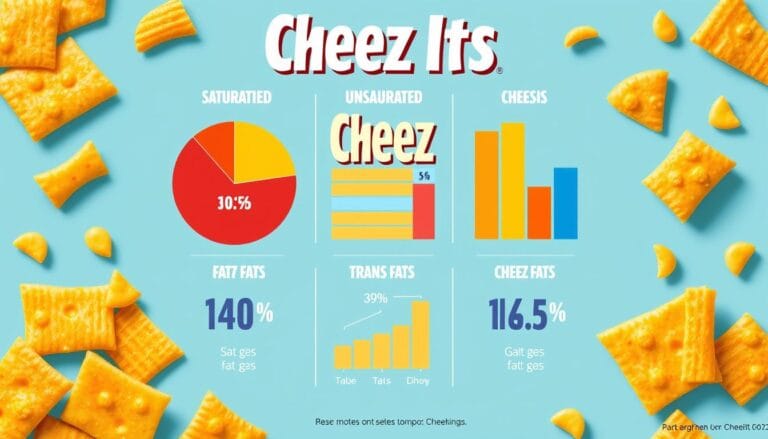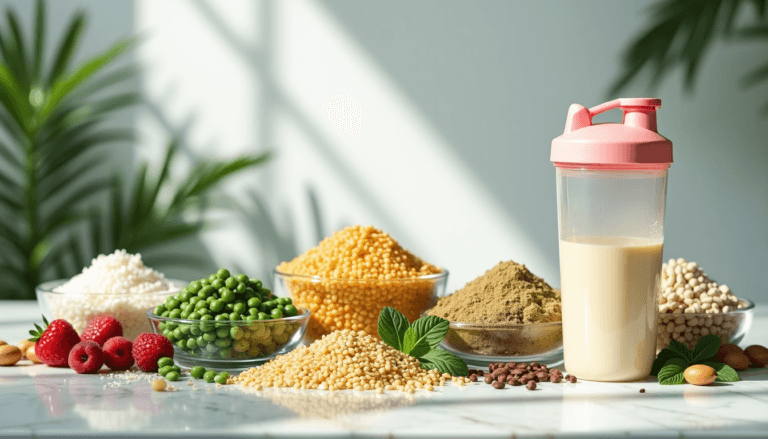How Many Calories in a Boiled Egg? – Quick and the best Nutrition Guide 01

Discover how many calories in a boiled egg and learn about its essential nutrients. Get expert insights on the nutritional value of this protein-rich superfood for your diet. As a busy professional, I always try to eat well to keep up with my active life. The boiled egg is a big part of my daily meals. But, have you ever thought about how many calories are in a boiled egg? In this guide, we’ll look closely at the nutrition in boiled eggs. We’ll find out what you need to know for your health and fitness goals.
Table of Contents
Key Takeaways
- Boiled eggs are a low-calorie, nutrient-dense food, providing essential vitamins, minerals, and high-quality protein.
- The calorie count in a boiled egg can vary depending on factors like egg size and cooking duration.
- Eggs offer a complete protein profile, making them a versatile and valuable addition to a balanced diet.
- Understanding the macronutrient breakdown of boiled eggs can help you plan your meals and snacks more effectively.
- Exploring different cooking methods and their impact on calories can help you find the perfect boiled egg preparation for your dietary needs.
Amazing Benefits of Avocado – The Ultimate Health Guide N1
Understanding Egg Nutrition Basic
Eggs are full of important vitamins, minerals, and other good stuff. Learning about egg nutrition helps us see how they fit into a healthy diet.
Key Nutrients in Eggs
Eggs are rich in high-quality protein and vitamins A, D, E, and B12. They also have minerals like iron, phosphorus, and selenium. Plus, they have choline, which is great for brain health. This makes eggs a food that’s full of nutrients and can help your health a lot.
White vs. Yolk Composition
The egg has two parts: the white and the yolk. The white is mostly protein, while the yolk has most of the fat and cholesterol. Knowing the difference helps you choose how to use eggs in your meals.
Daily Value Percentages
One large egg has about 72 calories. It gives you:
- Protein: 13% DV
- Vitamin A: 6% DV
- Vitamin D: 8% DV
- Vitamin B12: 15% DV
- Selenium: 28% DV
These numbers show how eggs are packed with nutrients. They can really help keep you healthy and feeling good.

How Many Calories in a Boiled Egg?
Boiled eggs have different calorie counts based on their size. A large boiled egg has about 78 calories. But, a small boiled egg has 63 calories, and an extra-large boiled egg has 91 calories.
Boiled eggs have calories similar to other foods. For example, they have the same calories as:
- 1 slice of whole-wheat bread (69 calories)
- 1 tablespoon of peanut butter (94 calories)
- 1 medium apple (80 calories)
Knowing the calories in boiled eggs helps with meal planning. It lets you make smart choices for a balanced diet.
| Egg Size | Calories |
|---|---|
| Small | 63 calories |
| Medium | 72 calories |
| Large | 78 calories |
| Extra-Large | 91 calories |
Understanding the calories in boiled eggs helps you make better diet choices. It supports your health and fitness goals.

Protein Content and Macronutrient Breakdown
Boiled eggs are known for their high protein content, making them a favorite among health enthusiasts. A large boiled egg has about 6 grams of protein. This protein has all the essential amino acids, helping your body grow, repair, and maintain itself.
Complete Protein Profile
Eggs are a complete protein source because they have all nine essential amino acids. This means your body can use the protein from eggs for muscle building, tissue repair, and making enzymes.
Fat Content Analysis
A large boiled egg has about 5 grams of fat, mostly healthy unsaturated fats. The egg yolk is where most of this fat comes from. It has a good mix of monounsaturated and polyunsaturated fats, including omega-3 fatty acids. This makes boiled eggs a nutritious choice for heart health and overall well-being.
Carbohydrate Components
Boiled eggs have almost no carbohydrates, with less than 1 gram per large egg. This makes them great for people on low-carb or ketogenic diets. They help you stay within your daily macronutrient targets without adding much to your carb intake.
| Macronutrient | Amount per Large Boiled Egg | % Daily Value |
|---|---|---|
| Calories | 77 | 4% |
| Protein | 6g | 12% |
| Fat | 5g | 8% |
| Carbohydrates | 0.6g | 0% |
Knowing the macronutrient breakdown of boiled eggs helps you add them to your diet. This way, you can improve your overall nutrient intake and support your health and fitness goals.
Health Benefits of Eating Boiled Eggs
Boiled eggs are a low-calorie snack that’s easy to eat. They’re also packed with health benefits. Adding them to your diet can be a smart choice, whether you’re on a boiled egg diet or just want to eat healthier.
Eating boiled eggs can help with weight management. They’re full of protein, which keeps you feeling full. This can help you avoid eating too much and support your weight loss efforts. Plus, the protein in eggs is great for muscle building and repair, perfect for those who are active or want to get in shape.
Boiled eggs are not just about protein. They also have important vitamins and minerals that are good for your health. They’re full of choline, which is key for brain function and development. They also have lutein and zeaxanthin, which are good for your eye health and vision.
“Boiled eggs are a simple, nutrient-dense food that can be a valuable part of a balanced diet.”
Adding boiled eggs to your diet can bring many health benefits. They support weight management, help with muscle growth, and keep your brain and eyes healthy. Whether you like them as a low-calorie snack or as part of your boiled egg diet, they’re a nutritious choice for your well-being.
Different Cooking Methods and Their Impact on Calories
The way you cook eggs can change their calorie count. Let’s look at the differences between soft-boiled and hard-boiled eggs. We’ll also see how cooking time affects calories.
Soft-Boiled vs. Hard-Boiled
Soft-boiled eggs cook for a shorter time, with a runny yolk. Hard-boiled eggs cook longer, with a firm yolk. Cooking time changes the calorie count:
- A soft-boiled egg has about 72 calories, mostly from the yolk.
- A hard-boiled egg has around 78 calories. This is because the longer cooking time releases more yolk fat, increasing calories slightly.
Impact of Cooking Duration
Cooking time also affects egg calories. Longer boiling times release more yolk fat, increasing calories. But the difference is small. Boiled eggs stay nutritious no matter the cooking time.
Best Practices for Preparation
To get the most from your boiled eggs, follow these tips:
- Choose fresh, high-quality eggs for the best taste and nutrition.
- Cook soft-boiled eggs for 6-7 minutes and hard-boiled for 12-14 minutes.
- Avoid overcooking to keep eggs tender and nutrient-rich.
- Enjoy eggs warm or chilled, as part of a boiled egg diet or healthy egg recipes.
“Boiled eggs are a simple, nutritious, and versatile food that can be easily incorporated into a balanced diet.”
Incorporating Boiled Eggs in Your Diet Plan
Boiled eggs are great for your diet. They help with weight management, muscle building, or just finding healthy snacks. Start your day with a boiled egg for a protein-rich breakfast. Or, enjoy them as a low-calorie snack all day.
Pair boiled eggs with whole-grain toast, avocado, or veggies for a balanced meal. This mix of protein, healthy fats, and carbs keeps you full and energized. You can also use boiled eggs in tasty healthy egg recipes like egg salad, frittatas, or omelets.
A single large boiled egg has about 77 calories. This makes it perfect for those watching their weight. Adjust your egg servings to fit your calorie needs and diet goals. Boiled eggs are great for a calorie-controlled diet or to build muscle, offering a convenient, nutritious option for your health and fitness goals.
FAQ
How many calories are in a boiled egg?
The calories in a boiled egg depend on its size. But, a large egg usually has about 78 calories.
What is the nutritional breakdown of a boiled egg?
A large boiled egg has about 6 grams of protein, 5 grams of fat, and almost no carbs. It’s packed with high-quality protein and important vitamins and minerals.
How do the calories in a boiled egg compare to other cooking methods?
Boiling eggs is a healthy way to cook because it doesn’t add extra calories or fat. Compared to fried or scrambled eggs, boiled eggs have fewer calories.
Are boiled eggs a good option for weight loss or dieting?
Yes, boiled eggs are great for weight loss or dieting. They’re low in calories, high in protein, and can make you feel full, helping you avoid overeating.
How can I incorporate boiled eggs into my diet?
You can enjoy boiled eggs as a snack, add them to salads, or use them in egg salad or avocado toast. They’re also good in many healthy meals and recipes. They’re easy to add to breakfast, lunch, or dinner.






